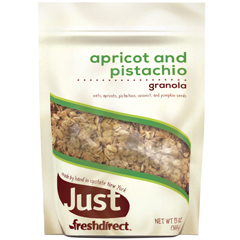
Long gone are the days of no-frills private label products and packaging intended only for those on a tight budget. Private-label products are no longer viewed simply as low-cost alternatives to name brands, according to Nielsen.
“They’re increasingly high-quality products that fulfill consumer needs across a variety of price points,” Nielsen wrote in its Nielsen Wire. “Shoppers have noticed this shift and are responding positively. Today, perceptions about private label are overwhelmingly favorable.”
Almost three-quarters of global respondents (71 percent) say private-label quality has improved over time. “A door once opened by economic necessity has widened to include a variety of private-label products that remain viable and trusted for many consumers worldwide,” Nielsen said.
To understand current consumer perceptions about private-label quality, value, assortment and packaging, Nielsen polled more than 30,000 online consumers in 60 countries. While regional perceptions about private label vary greatly, a few universal truths emerged around the world, according to Nielsen:
- Price is important to most consumers and is the primary driver of consumers’ purchase intent for private label. Sixty-nine percent of respondents globally feel it’s important to get the best price on a product. Moreover, 70 percent say they purchase private label to save money.
- Private label’s appeal goes beyond price. Consumers are also seeking quality and value, and a majority of respondents find that private label delivers on both of these attributes. Two-thirds (67 percent) believe private label offers extremely good value for the money, and 62 percent say buying private label makes them feel like a smart shopper.
But do these enthusiastic attitudes translate into sales? The answer depends on the market, according to Nielsen. In terms of private-label sales development, the world can be divided into two distinct spheres: the developed world (Europe, North America and the Pacific) and the developing world (Latin America, Asia and Africa/Middle East). While value share is at or above 15 percent in developed regions (and as high as 45 percent in Europe), it is below 10 percent in most developing countries in the study. In fact, it is 5 percent or less in key markets, such as China, India and Brazil.
While learnings about private-label success in one market can help in another, there is no universal approach for all, according to Nielsen. Private-label growth requires custom approaches for each market. Findings from Nielsen’s study reveal:
- Private-label success is strongest in commodity-driven, high-purchase categories and those where consumers perceive little differentiation.
- Private-label growth typically comes at the expense of small- and mid-sized brands, while category leaders remain relatively safe.
- Retail consolidation and the expansion of the discount format are key drivers for private-label growth in developed markets.
- Private label struggles to gain consumer trust in Asia and the Middle East, where consumers are fiercely brand-loyal.

